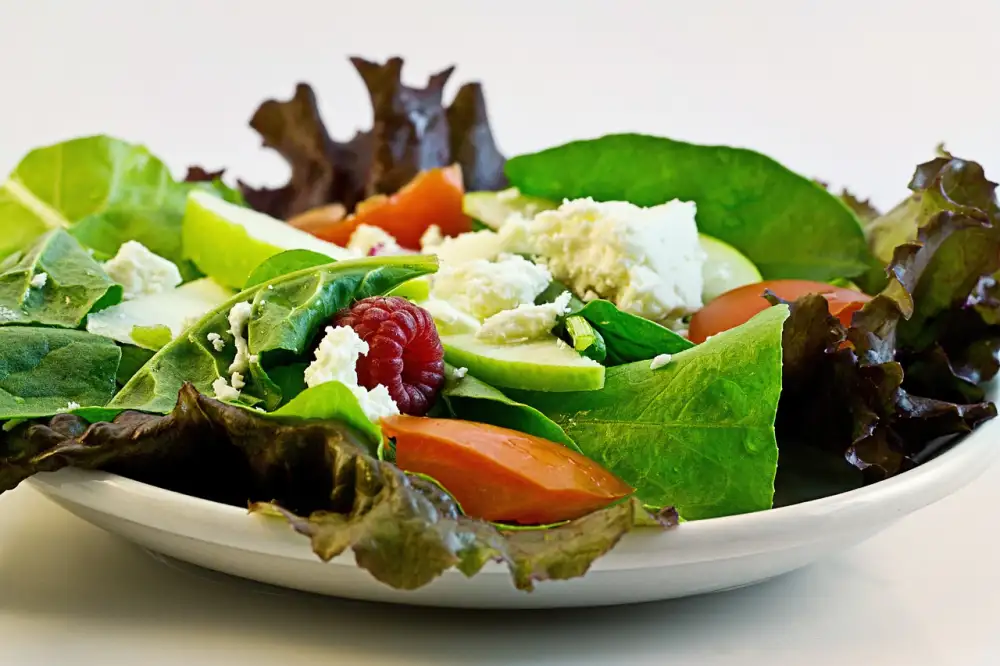Trim Down and Savor: Discover Delicious Weight Loss Meals for a Healthier You

- Understanding the Importance of a Balanced Diet
- Incorporating Lean Proteins in Your Meals
- Including Fiber-rich Foods for Satiety
- Choosing Healthy Fats for Optimal Weight Loss
- Incorporating Whole Grains for Sustained Energy
- The Role of Fruits and Vegetables in Weight Loss Meals
- Portion Control and Mindful Eating
- Meal Planning and Preparing Ahead of Time
- Healthy Snack Options for Weight Loss
- Hydration and its Impact on Weight Loss
Embarking on a weight loss journey can be both exciting and challenging. One of the key components of achieving your weight loss goals is incorporating nutritious and delicious meals into your daily routine. These weight loss meals are designed to help you shed those extra pounds while still enjoying flavorful and satisfying dishes. In this article, we will explore various strategies and tips for creating mouthwatering weight loss meals that will not only help you trim down but also nourish your body with essential nutrients. So get ready to discover a world of delectable flavors that will support your journey towards a healthier you!
Understanding the Importance of a Balanced Diet
When it comes to weight loss, a balanced diet is key. It's not just about cutting calories; it's about nourishing your body with the right nutrients. A balanced diet ensures that you're getting all the essential vitamins, minerals, and macronutrients your body needs to function optimally.
A balanced diet consists of a variety of foods from different food groups. This includes lean proteins, whole grains, fruits and vegetables, healthy fats, and fiber-rich foods. Each of these food groups plays a crucial role in supporting weight loss.
Proteins help build and repair tissues while also keeping you feeling full for longer. Incorporate lean proteins like chicken breast, fish, tofu, or legumes into your meals to promote muscle growth and aid in weight loss.
Fiber-rich foods such as whole grains, beans, and vegetables add bulk to your meals without adding excess calories. They provide satiety and help regulate blood sugar levels, preventing cravings and overeating.
Healthy fats are an essential part of a balanced diet as they provide energy and support various bodily functions. Opt for sources like avocados, nuts, seeds, and olive oil to satisfy your fat requirements without compromising on health.
By understanding the importance of a balanced diet in weight loss efforts, you can make informed choices about what you eat. Remember that balance is key – focus on incorporating all food groups in appropriate portions to achieve sustainable weight loss results.
Incorporating Lean Proteins in Your Meals
Incorporating lean proteins in your meals is essential for weight loss and overall health. Protein helps to build and repair tissues, boosts metabolism, and keeps you feeling fuller for longer. Opt for sources such as skinless chicken breast, turkey, fish, tofu, beans, and lentils. These options are low in fat and high in protein. Be mindful of portion sizes and aim to include a serving of lean protein in each meal to support your weight loss goals.
Including Fiber-rich Foods for Satiety
One key component of a successful weight loss meal plan is incorporating fiber-rich foods. Fiber not only aids in digestion but also provides a feeling of fullness, helping to curb cravings and prevent overeating. Opt for whole grains such as brown rice, quinoa, and oats, which are packed with fiber and essential nutrients. Additionally, include plenty of fruits and vegetables like berries, broccoli, and leafy greens, as they are excellent sources of dietary fiber. By including these fiber-rich foods in your meals, you can stay satisfied longer and maintain a healthy weight.
Choosing Healthy Fats for Optimal Weight Loss
Contrary to popular belief, not all fats are bad for you. In fact, incorporating healthy fats into your weight loss meals can actually help you shed those extra pounds. Healthy fats, such as avocados, nuts, and olive oil, provide essential nutrients and keep you feeling satisfied for longer periods of time. These fats also play a crucial role in supporting brain function and maintaining healthy skin. So go ahead and enjoy that avocado toast or drizzle some olive oil on your salad – just remember to do so in moderation!
Incorporating Whole Grains for Sustained Energy
Incorporating whole grains into your weight loss meals is a smart choice for sustained energy throughout the day. Unlike refined grains, which have been stripped of their fiber and nutrients, whole grains are packed with essential vitamins, minerals, and dietary fiber. This combination helps to slow down digestion and keep you feeling fuller for longer periods of time. Some popular whole grain options include quinoa, brown rice, oats, and whole wheat bread. By swapping out refined grains with these nutritious alternatives, you can enjoy delicious meals while keeping your energy levels steady and supporting your weight loss journey.
The Role of Fruits and Vegetables in Weight Loss Meals
Fruits and vegetables play a crucial role in weight loss meals. They are low in calories and high in nutrients, making them the perfect addition to any diet. Incorporating a variety of colorful fruits and vegetables into your meals not only adds flavor and texture but also provides essential vitamins, minerals, and antioxidants. These nutrient-rich foods help boost metabolism, promote satiety, and support overall health. Whether enjoyed raw, steamed, roasted, or blended into smoothies, fruits and vegetables are a delicious way to trim down while nourishing your body.
Portion Control and Mindful Eating
Portion control and mindful eating are crucial aspects of a successful weight loss journey. It's not just about what you eat, but also how much you eat. By being mindful of your portion sizes, you can avoid overeating and ensure that you're consuming the right amount of nutrients. One helpful tip is to use smaller plates and bowls to trick your brain into thinking you're eating more than you actually are. Additionally, take the time to savor each bite and listen to your body's hunger cues. Eating slowly allows your brain to register when you're full, preventing unnecessary overeating. Remember, it's not about depriving yourself, but rather finding a balance between enjoying your food and nourishing your body.
Meal Planning and Preparing Ahead of Time
One of the keys to successful weight loss is meal planning and preparing ahead of time. By taking the time to plan your meals for the week, you can ensure that you have nutritious options readily available and avoid making impulsive, unhealthy choices.
Start by creating a weekly meal plan that includes a variety of healthy recipes. Consider incorporating lean proteins, fiber-rich foods, healthy fats, whole grains, and plenty of fruits and vegetables. This will provide you with a well-balanced diet that supports weight loss.
Once you have your meal plan in place, take some time to prepare your meals in advance. This could involve cooking large batches of food and portioning them out into individual containers for easy grab-and-go options throughout the week. You can also chop up fruits and vegetables or pre-cook grains to save time during busy weekdays.
By having your meals ready to go, you eliminate the need for last-minute takeout or unhealthy snacks. Plus, it allows you to control portion sizes and make healthier choices.
Remember, consistency is key when it comes to weight loss. By planning and preparing your meals ahead of time, you set yourself up for success on your journey towards a healthier lifestyle.
Healthy Snack Options for Weight Loss
When it comes to weight loss, snacking can be a challenge. However, choosing the right snacks can actually support your weight loss goals. Opt for snacks that are low in calories but high in nutrients. Some healthy snack options include fresh fruits like apples or berries, which provide natural sweetness and fiber. Greek yogurt with a sprinkle of nuts or seeds is another great choice, as it offers protein and healthy fats. Vegetables like carrot sticks or cucumber slices paired with hummus make for a satisfying and nutritious snack. Lastly, air-popped popcorn or a handful of almonds can provide a crunchy and filling option. Remember to choose snacks mindfully and listen to your body's hunger cues.
Hydration and its Impact on Weight Loss
Hydration plays a crucial role in weight loss. Drinking an adequate amount of water throughout the day can help boost your metabolism and promote fat burning. Additionally, staying hydrated can reduce feelings of hunger and prevent overeating. Replace sugary beverages with water or herbal tea to cut down on empty calories. Aim to drink at least 8 glasses of water daily and increase your intake during exercise or hot weather. Remember, staying hydrated is not only important for weight loss but also for overall health and well-being.
In conclusion, when it comes to weight loss meals, it's important to embrace a sustainable approach. Crash diets and extreme restrictions may offer quick results, but they are not sustainable in the long run. Instead, focus on creating a balanced diet that incorporates lean proteins, fiber-rich foods, healthy fats, whole grains, fruits, and vegetables. Practice portion control and mindful eating to avoid overeating. Plan and prepare your meals ahead of time to stay on track. And don't forget to hydrate properly throughout the day. Remember, sustainable weight loss is about making healthy choices that you can maintain for the long term.
Published: 28. 12. 2023
Category: Health



